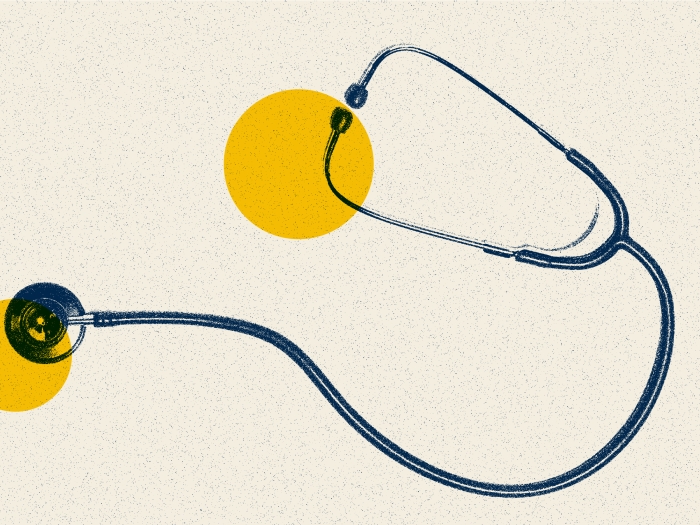Finding could improve outcomes for treatment of infections in people living with HIV.
10:31 AM
Author |

Upon starting antiretroviral therapy, a significant portion of people living with HIV will develop a debilitating and potentially fatal condition known as immune reconstitution inflammatory syndrome (IRIS). The syndrome is often linked to a preexisting infection with the fungus Cryptococcus to which people with suppressed immune systems are predisposed.
During IRIS, as antiretroviral therapy enables a person's immune system to rebound from HIV infection, their immune response goes into overdrive, leading to the destruction of organs of patients harboring the infection. In case of Cryptococcus inflammation develops in the CNS and severe brain damage is a common outcome leading to neurological symptoms and death. A new paper from Michigan Medicine researchers reveals in greater detail the specifics behind this immune response gone awry and identifies a potential target to stop it.
Jintao Xu, Ph.D. and Michal A. Olszewski, D.V.M., Ph.D., both of the U-M division of pulmonary and critical care medicine and research service at the Ann Arbor VA Hospital, and their team found that the T cells necessary for clearing the fungal infection from the body were also leading to inflammation in the brain. They identified two receptors that the immune system uses to stimulate immune cell migration, CXCL10 and CXCR3, that appear to be implicated in the immune overreaction.
"CXCL10 molecule acts like an attractive scent, while the receptor CXCR3 acts like the nose that directs the T cell migration towards the source of CXCL10 production," explains Olszewski. "CXCL10 is the signal for the recruitment of T cells, which we have seen accumulating in the brains of the infected mice."
To test the hypothesis that the CXCR3/CXCL10 pathway is behind brain injury, they performed a number of experiments in mice. They found that mice genetically bred to lack CXCR3 on their T cells were protected against brain inflammation, had less brain damage, and were still able to fight Cryptococcus.
Furthermore, they demonstrated that removing CXCR3 did not reduce the immune response in other body parts such as the spleen, needed to clear the Cryptococcus infection in the mouse, while it limited the excess inflammation in the brain.
"Our study identified CXCR3 positive T cells that damage neurons in our mouse model, which suggests to us that if you treat patients with anti-CXCR3 antibody or other chemical inhibitors of this pathway, you can potentially reduce neurological symptoms in those patients without compromising their abilities to deal with the microbe itself," says Xu.
Paper cited: "Chemokine receptor CXCR3 is required for lethal brain pathology but not pathogen clearance during cryptococcal meningoencephalitis," Science Advances. DOI: 10.1126/sciadv.aba2502

Explore a variety of healthcare news & stories by visiting the Health Lab home page for more articles.

Department of Communication at Michigan Medicine
Want top health & research news weekly? Sign up for Health Lab’s newsletters today!





